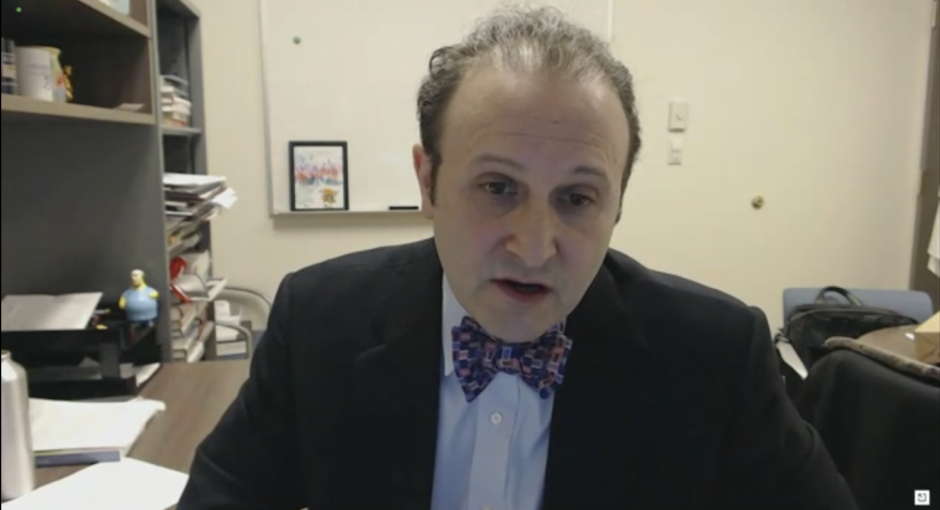The Senate committee with direct jurisdiction over the 340B program held its first drug pricing hearing of the 117th Congress Tuesday. It held the session amid signs that House Democrats want to add language to let Medicare negotiate drug prices to a major infrastructure bill.
The Senate HELP Primary Care and Retirement Security Subcommittee hearing also took place amid a flurry of drug pricing bill introductions in the House and Senate. While drug pricing is heating up in Congress, the 340B program has not received much attention, at least not in public.
340B was only referenced briefly during the Senate hearing. Sen. Jacky Rosen (D-Nev.) remarked that 340B is critical to Nevada because of the hundreds of thousands of its residents who live in rural communities. She asked witness Dr. Aaron Kesselheim, professor of medicine at Harvard Medical School, to talk about its importance.
“There’s no doubt the fact that 340B pricing is among the best prices we offer for certain high-cost drugs,” Kesselheim replied. However, he also noted that the program “has expanded over the years perhaps beyond what was originally intended,” which he said has triggered discussions about which hospitals should qualify for the program.
Although all participants in the hearing agreed drugs were too expensive in the U.S., the debate among Democratic and Republican senators on the committee fissured over what role the federal government should play in bringing down prices.
Kesselheim and another witness, Dr. Nav Persaud, a faculty member at the University of Toronto who specializes in health justice, backed letting government have a role in negotiating, setting, and regulating prices. Alex Brill, a resident fellow at the American Enterprise Institute, recommended promoting competition among manufacturers to lower prices, accelerating the use of biosimilars, and cracking down on abuse of the Orphan Drug Act that shields widely used drugs from competition from generics.
Two Republican senators who have raised questions about hospital participation in 340B derided the current drug pricing system but suggested that the government’s role in fixing it be limited or at least shared with the private sector.
Sen. Mike Braun (R-Ind.) decried a lack of transparency in drug pricing and disengaged consumers who “want no skin in the game.” He said the pharmaceutical sector is “like an unregulated utility.” But he also said that “the industry has dug in, resisting reform that I think needs to take place before you bring more government into play.”
Braun asked Kesselheim why he is anxious about introducing greater price transparency into the pharmaceutical sector.
Kesselheim said introducing price transparency but doing nothing else raises the risk that prices will rise even further because “those secret backroom deals that PBMs arrange is really the only system we have in the country right now for lowering prices” and transparency would eliminate that tool.
“I would be very much in favor of transparency, if you marry it with (drug) evaluation and (price) negotiation because then you really don’t need PBMs,” he replied. “You can just have what a fair price is.”
Braun agreed with that, but suggested employers work on price negotiation as well.
Sen. Bill Cassidy (R-La.) also grilled Kesselheim on his recommendation that the federal government negotiate with drug manufacturers on price for Medicare and other programs. Cassidy suggested that the government would likely be the sole purchaser of most of the drugs to treat Alzheimer’s disease and cancer.
“If a President Bernie Sanders decided that we’re going to go to negotiating drugs, who would invest in an Alzheimer’s drug, knowing that the return on investment from Medicare would be so poor?” Cassidy asked. Sanders, who chairs the subcommittee and called Tuesday’s hearing,
backs letting the government negotiate drug prices,
Kesselheim disagreed with Cassidy that government price negotiation would squelch innovation.
“If there is a new drug – especially for a condition like Alzheimer’s that doesn’t have any good treatments – and it offered an extremely substantial benefit…I would think that under this current system we would pay a lot of money for that drug because it would reduce so much excess spending on” other conditions, Kesselheim said. He noted that in Germany, for example, the government negotiates with drug manufacturers to obtain prices that still allow them to make a “substantial” profit.


